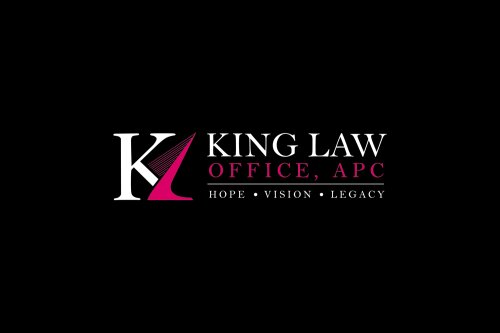Best Probate Lawyers in United States
Share your needs with us, get contacted by law firms.
Free. Takes 2 min.
Or refine your search by selecting a city:
List of the best lawyers in United States
United States Probate Legal Questions answered by Lawyers
Browse our 1 legal question about Probate in United States and read the lawyer answers, or ask your own questions for free.
- My husband passed away five years ago. We have a property in th Philippines and I would like to transfer everything to my child. We are now residing in California, as U.S. citizens and my late husband a Filipino citizen.c
- How can I transfer Title on the property to my child?
-
Lawyer answer by Recososa Law Firm
Hello: We are sorry to hear about the passing of your husband, and we extend our deepest condolences. Regarding your concern, since your husband was a Filipino citizen and you are now both U.S. citizens residing in California, the property...
Read full answer
About Probate Law in United States
Probate is the legal process through which a deceased person's will is validated, and their estate is administered and distributed. In the United States, probate seeks to ensure that the deceased's debts are paid and that their remaining assets are distributed according to their will or, if there is no will, according to state laws. The process is carried out in probate court and can vary considerably depending on the state and the complexity of the estate.
Why You May Need a Lawyer
While some may opt to navigate probate independently, hiring a lawyer can be beneficial in several scenarios:
- The estate is large or unusually complex.
- The deceased left a will that is unclear or contested.
- There are disputes among the heirs.
- There are unpaid debts and tax issues that require resolution.
- The estate has significant outstanding or potential litigation.
- To ensure compliance with local probate laws and avoid mistakes that could extend the process.
Local Laws Overview
Probate laws in the United States are primarily governed at the state level, leading to a diversity of rules and procedures. Key points to consider include:
- State Variations: Each state has its own statutes and protocols; understanding local rules is crucial.
- Small Estate Procedures: Many states offer simplified proceedings for smaller estates, bypassing traditional probate.
- Executor Duties: The appointed executor must follow specific steps, including filing the will, managing assets, and submitting required reports.
- Inheritance Laws: Intestate succession laws govern the distribution of assets when no valid will exists.
- Time Limits: Deadlines exist for filing claims against the estate, contesting a will, and other legal actions.
Frequently Asked Questions
What is probate?
Probate is the legal process of validating a will, settling debts, and distributing the deceased's assets under court supervision.
Do all estates go through probate?
No, some estates avoid probate through mechanisms like living trusts, joint ownership, and named beneficiaries on financial accounts.
How long does probate take?
The duration can range from a few months to several years, depending on factors like estate size, complexity, and potential disputes.
Is probate expensive?
Yes, the costs can include court fees, executor fees, attorney fees, and other expenses. However, small estate procedures can minimize these costs.
Can I contest a will?
Yes, you can contest a will, but you must have legal standing and valid grounds such as undue influence, mental incapacity, or fraud.
How is an executor appointed?
If a will names an executor, the court will generally appoint that person. Without a named executor, the court may appoint a qualified individual.
What happens if there is no will?
The estate will be distributed according to state intestate succession laws, typically prioritizing spouses, children, and close relatives.
Can probate be avoided?
Yes, through estate planning tools like living trusts, transfer-on-death accounts, and joint ownership, probate can often be avoided.
What are executor responsibilities?
The executor must manage the estate, pay debts, account for property, file necessary documents, and distribute assets according to the will.
Do I need a lawyer for small estates?
Not always, but a lawyer can help ensure everything is completed correctly and efficiently, preventing potential issues.
Additional Resources
Consider exploring these resources for more information or assistance:
- The American Bar Association (ABA)
- The National Association of Estate Planners & Councils (NAEPC)
- State-specific probate courts or legal assistance websites
- Legal aid organizations operating in your area
- Books and guides on estate planning and probate processes
Next Steps
If you need legal assistance in probate, consider these steps:
- Assess Your Needs: Determine if the estate requires a lawyer's expertise based on its value and complexity.
- Research: Look for experienced probate attorneys in your state who have a strong track record.
- Consult: Schedule consultations with potential lawyers to discuss your situation, their approach, and fee structures.
- Prepare: Gather all necessary documents like the will, death certificate, and a list of assets and debts.
- Proceed: Work with your chosen attorney to file the probate case and manage the ensuing process effectively.
Lawzana helps you find the best lawyers and law firms in United States through a curated and pre-screened list of qualified legal professionals. Our platform offers rankings and detailed profiles of attorneys and law firms, allowing you to compare based on practice areas, including Probate, experience, and client feedback.
Each profile includes a description of the firm's areas of practice, client reviews, team members and partners, year of establishment, spoken languages, office locations, contact information, social media presence, and any published articles or resources. Most firms on our platform speak English and are experienced in both local and international legal matters.
Get a quote from top-rated law firms in United States — quickly, securely, and without unnecessary hassle.
Disclaimer:
The information provided on this page is for general informational purposes only and does not constitute legal advice. While we strive to ensure the accuracy and relevance of the content, legal information may change over time, and interpretations of the law can vary. You should always consult with a qualified legal professional for advice specific to your situation.
We disclaim all liability for actions taken or not taken based on the content of this page. If you believe any information is incorrect or outdated, please contact us, and we will review and update it where appropriate.
Browse probate law firms by state in United States
Refine your search by selecting a state.
















